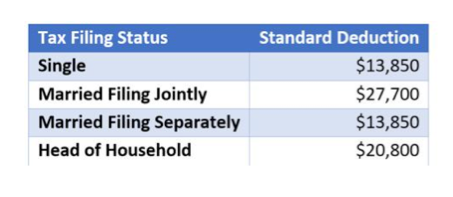A comparison of itemized deductions vs. the FEIE Standard Deduction for expats
The Foreign Earned Income Exemption Explained: An Overview to Enhancing Your Conventional Deduction
The Foreign Earned Revenue Exemption (FEIE) is a vital tax obligation stipulation for U.S. residents and resident aliens living abroad. It permits qualified migrants to exclude a considerable portion of their foreign-earned earnings from government taxes. Understanding the subtleties of FEIE can result in significant tax savings. Nevertheless, many people forget vital details that might impact their eligibility and benefits. Exploring these facets may disclose opportunities for improved tax outcomes.
Understanding the Foreign Earned Revenue Exemption
Many expatriates look for opportunities abroad, recognizing the Foreign Earned Income Exemption (FEIE) is crucial for handling their tax obligation obligations. This arrangement permits U.S. citizens and resident aliens living overseas to omit a particular quantity of their earned income from government tax. The FEIE was established to minimize the tax problem on individuals that reside outside the USA, acknowledging the one-of-a-kind financial difficulties they may deal with.

Qualification Demands for FEIE

How to Claim the FEIE
To successfully declare the Foreign Earned Income Exclusion (FEIE), taxpayers have to first validate their eligibility based on certain requirements - FEIE Standard Deduction. The process entails several steps, consisting of filing the appropriate kinds and supplying required documents. Recognizing these requirements and procedures is necessary for taking full advantage of tax advantages while living abroad
Qualification Demands
Eligibility for the Foreign Earned Revenue Exclusion (FEIE) rests on conference particular standards established by the internal revenue service. To qualify, people have to be united state residents or resident aliens who gain earnings while functioning abroad. They need to develop an international tax obligation home, which suggests their major business is outside the United States. Furthermore, candidates have to satisfy either the Bona Fide House Test or the Physical Visibility Examination. The Authentic Home Examination needs that a taxpayer resides in an international country for an entire tax year, while the Physical Visibility Test requires investing at the very least 330 full days in an international country during a 12-month duration. Meeting these needs is essential for declaring the FEIE.
Declaring Refine Actions
Just how can one efficiently browse the procedure of claiming the Foreign Earned Revenue Exemption (FEIE)? Initially, people should determine their qualification based on the physical existence examination or the authentic home test. Once confirmed, they need to complete internal revenue service Form 2555, which information international earnings and residency. This type needs to be connected to their annual tax obligation return, normally Type 1040. It is important to properly report all foreign made revenue and guarantee compliance with the IRS standards. Furthermore, taxpayers should keep correct documentation, such as foreign income tax return and evidence of residency. By following these steps, individuals can efficiently assert the FEIE and potentially minimize their taxable earnings significantly, enhancing their total monetary placement.
Calculating Your International Earned Income Exclusion
While numerous migrants seek to maximize their economic advantages abroad, comprehending the estimation of the Foreign Earned Earnings Exclusion is important for precise tax obligation coverage. The Foreign Earned Revenue Exemption allows qualifying individuals to exclude a particular amount of their foreign profits from united state taxes, which is adjusted each year for rising cost of living. To calculate this exemption, expatriates have to determine their overall international gained income, which typically consists of earnings, wages, and professional fees made while residing in an international country.
Next, they need to finish IRS Form 2555, providing details regarding their international residency and job status. FEIE Standard Deduction. It's essential to meet either the bona fide residence examination or the physical existence examination to receive the exemption. As soon as these factors are established, the maximum permitted exclusion amount is used, minimizing the person's gross income considerably. Exact estimations can cause considerable tax financial savings for expatriates living and working abroad
The Impact of FEIE on Other Tax Benefits
The Foreign Earned Revenue Exclusion (FEIE) can affect a person's eligibility for Find Out More specific tax obligation advantages, including the common deduction. By omitting foreign earned revenue, taxpayers might locate their modified gross earnings impacted, which subsequently can affect their credentials for different tax obligation credit scores. Recognizing these communications is important for optimizing tax obligation outcomes while living abroad.
Communication With Requirement Reduction
When individuals receive the Foreign Earned Earnings Exclusion (FEIE), their qualification for the basic reduction may be affected, possibly modifying their total tax obligation obligation. The FEIE permits taxpayers to exclude a certain amount of gained income from united state taxation, which can lead to a reduced taxable earnings. As an outcome, if the excluded earnings surpasses the typical reduction, it can reduce the advantage of claiming that deduction. Additionally, taxpayers who utilize the FEIE may find that their ability to detail deductions is also influenced, as certain expenditures might be influenced by the exclusion. Comprehending this interaction is vital for expatriates to optimize their tax advantages while guaranteeing compliance with U.S. tax obligation legislations
Qualification for Tax Credit Ratings
Steering with the complexities of tax credit scores can be challenging for migrants, particularly considering that the Foreign Earned Earnings Exemption (FEIE) can substantially impact qualification for these benefits. The FEIE enables qualified individuals to omit a substantial section of their foreign profits from united state taxes, but this exclusion can additionally affect access to various tax obligation credit reports. Taxpayers that make use of the FEIE may discover themselves ineligible for credit scores like the Earned Revenue Tax Credit Score (EITC), as these credit histories usually call for taxable earnings. In addition, the exclusion may limit the capability to claim particular deductions or credit scores linked with dependents. Therefore, comprehending the interaction in between the FEIE and offered tax credits is vital for migrants intending to optimize their tax obligation situation.
Typical Errors to Prevent When Claiming FEIE
Generally, expatriates encounter numerous challenges while claiming the Foreign Earned Earnings Exemption (FEIE), which can bring about pricey mistakes or missed chances. One frequent error is stopping working to satisfy the physical visibility or authentic house test, which is vital for eligibility. In addition, expatriates typically overlook the need to submit Form 2555 properly, resulting in incomplete or unreliable entries.
Another common mistake includes improperly calculating foreign made income, as many do not account for all appropriate income resources. Some expatriates incorrectly assume they can omit all their earnings, unaware of the restrictions on the exclusion amount. Furthermore, neglecting to preserve proper documentation, such as traveling dates and residency condition, can jeopardize a claim. Misunderstanding the implications of the FEIE on various other tax debts might lead to unintentional tax obligation liabilities. Recognition of these challenges can facilitate a smoother asserting process and optimize prospective advantages.
Resources for Expats Navigating U.S. Taxes
Navigating U.S. tax commitments can be challenging for migrants, especially after experiencing pitfalls in declaring the Foreign Earned Revenue Exclusion (FEIE) To assist browse these intricacies, a variety of sources are offered. The IRS internet site supplies considerable details on tax obligation laws, frequently asked questions, and types specifically tailored for expatriates. In addition, organizations like the American People Abroad (ACA) and the Expat Tax Professionals deal support and support to ensure conformity with tax regulations.
Online online forums and communities, such as the Expat Discussion forum, enable migrants to share experiences and understandings, cultivating a helpful atmosphere for those encountering similar challenges. Tax obligation preparation software program, see this here like copyright and H&R Block, commonly consists of features made for deportees, making the filing procedure more straightforward. Engaging with these resources can equip migrants to better understand their tax responsibilities and make best use of advantages like the FEIE.
Regularly Asked Questions
Can I Declare FEIE if I'M Independent Abroad?
Yes, independent people abroad can claim the Foreign Earned Earnings Exclusion (FEIE) To qualify, they must useful reference fulfill details requirements regarding residency and income, ensuring they abide by internal revenue service guidelines for expatriates.

Is the FEIE Applicable to Foreign Pensions?
The Foreign Earned Revenue Exemption (FEIE) is not appropriate to international pension plans. Pensions are considered unearned income and do not get the exemption, which particularly applies to made earnings from employment or self-employment abroad.
What Occurs if I Go Back To the United State Mid-Year?
They may require to change their tax circumstance if a private returns to the U.S. mid-year. Their qualification for sure reductions and exclusions, consisting of the Foreign Earned Revenue Exclusion, might be affected by their residency standing.
Can FEIE Be Reported With Various Other Deductions?
Yes, the Foreign Earned Earnings Exemption (FEIE) can be declared alongside various other reductions. Nevertheless, treatment has to be taken to ensure proper conformity with tax regulations, as specific restrictions may apply based upon specific scenarios.
Exactly How Does FEIE Influence State Tax Obligation Commitments?
The Foreign Earned Earnings Exclusion can decrease a taxpayer's government income tax obligation responsibility, yet it does not immediately affect state tax obligation obligations, which vary by state and may still need reporting of foreign earnings.
Numerous migrants seek possibilities abroad, comprehending the Foreign Earned Income Exclusion (FEIE) is essential for managing their tax obligation responsibilities. By excluding international earned income, taxpayers might discover their modified gross revenue impacted, which in turn can influence their certification for numerous tax obligation credit scores. Steering through the complexities of tax obligation credits can be challenging for migrants, especially given that the Foreign Earned Revenue Exemption (FEIE) can greatly impact eligibility for these benefits. Taxpayers that use the FEIE might find themselves disqualified for credit reports like the Earned Revenue Tax Obligation Credit Score (EITC), as these credit reports commonly call for taxable earnings. Navigating U.S. tax obligation commitments can be challenging for migrants, especially after running into mistakes in declaring the Foreign Earned Revenue Exemption (FEIE)